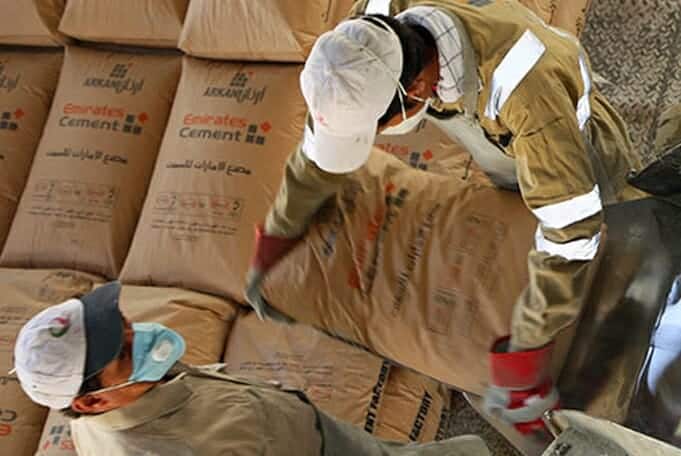The outbreak of the COVID-19 pandemic in Q1 2020 has given a new push to the merger and acquisitions activity in the sectors such as banking, energy utilities and industries among others in the GCC in the last 15 months.
An active merger and acquisitions market indicates a buoyant stock and credit markets as the listed and unlisted companies planning mergers believe that they can become a stronger entity by becoming one instead of functioning as separate entities.
As the region’s markets made positive gains during the past year, it was but natural the companies were looking forward to takeovers and mergers. Expanding regional and global footprints, high revenues, cheap capital to invest and diversification are among the major reasons that have hastened the merger processes.
In June 2020, Emerging Markets Property Group (EMPG) in Dubai and Amsterdam-based OLX Group have merged their MENA and South Asia operations to form a $1 billion unicorn company based in Dubai.
EMPG and OLX both own popular portals within the UAE – Bayut is owned by the former while Dubizzle is owned by the latter.
Abu Dhabi National Energy Company (TAQA) was among the first companies, which announced in February this year to acquire Abu Dhabi Power Corporation (ADPower) and the transaction was completed on July 1 this year.
The merger created one of the largest utility companies in the Europe, Middle East and Africa (EMEA) region. TAQA, which is listed on the Abu Dhabi Securities Exchange (ADX), became the UAE’s third-largest publicly traded company by market capitalization after the merger.
Bahrain’s Kalaam Telecom acquired Kuwait-based information communications technology company Zajil Telecom in June this year. The deal was to create a $100 million technology solutions company to drive GCC’s digital transformation. The deal is estimated to be the largest in the region’s ICT sector in the last three years.
MEA’s M&A deals in 2020
According to Mergermarkets, nearly US$100 billion worth of M&A deals were clinched in the Middle East & Africa region in 2020. The top five transactions accounted for more than half of this deal value, two of which were based in Saudi Arabia.
Most notable is the US$15 billion-plus deal between The National Commercial Bank and Samba Financial Group, which merged to form Saudi National Bank.
According to strategic consultancy firm The Unit, this activity will persist through 2021, with a focus on certain sectors. Ecommerce has been among the big winners of lockdown, and will likely host significant transaction activity this year. Healthcare is another sector in urgent need of modernization to boost crisis-preparedness.
Long history in UAE
Emirates Bank and National Bank of Dubai were both listed on the DFM at the time of the merger. These companies merged in 2007 by way of a simultaneous exchange offer by a new holding company for all of the shares of Emirates Bank and all of the shares of the National Bank of Dubai.
The United Arab Bank (listed on the ADSE) announced in 2007 that the Commercial Bank of Qatar, listed on the Qatar Stock Exchange, had acquired 40 percent of the United Arab Bank’s share capital from major shareholders of the United Arab Bank.
The UAE has 21 local and 27 foreign banks and the merger of some of them cannot be ruled out in the coming months.
The merger of Arkan Building Materials Company and Emirates Steel Industries, a subsidiary of Sennat, is the third such merger in the post-COVID era and the third since the beginning of 2021.
In January 2021, Senaat’s food and beverage subsidiary Agthia was merged with Al Foah, the world’s largest dates processing and packaging company.
A month later, Abu Dhabi’s National Petroleum Construction Company (NPCC) merged with the National Marine Dredging Company (NMDC).
Mergers in the banking sector
In other GCC countries, the banking sector too came under the hammer due to the economic fallout of low oil prices and the pandemic.
According to Oxford Business Group, Abu Dhabi Commercial Bank, the Union National Bank and the Abu Dhabi-based Islamic finance institution Al Hilal Bank merged into a single entity and became the UAE’s third-largest bank, with an estimated US$114.4 billion in assets.
In Saudi Arabia, the merger of Saudi British Bank and Alawwal Bank was announced in 2018 and the transaction was completed in June 2019.
Qatar too had its share of mergers as Masraf Al Rayan announced a merger with Al Khaliji Commercial Bank in June 2020 and the two banks became a single entity early this year.
In Bahrain, the Ahli United Bank was to be acquired by Kuwait Finance House but the deal was deferred due to the pandemic. Once the merger process is completed, the new entity will be the GCC’s sixth-largest bank, with over US$100 billion in assets.







